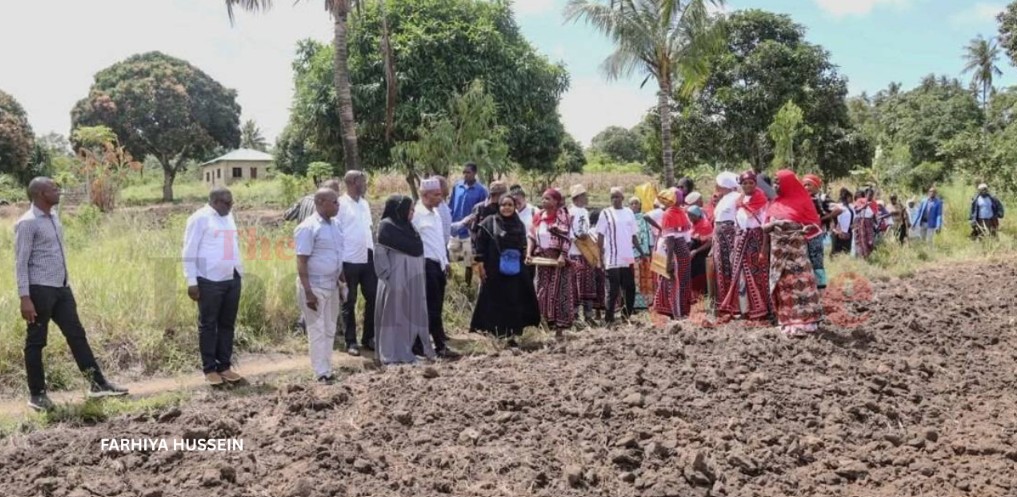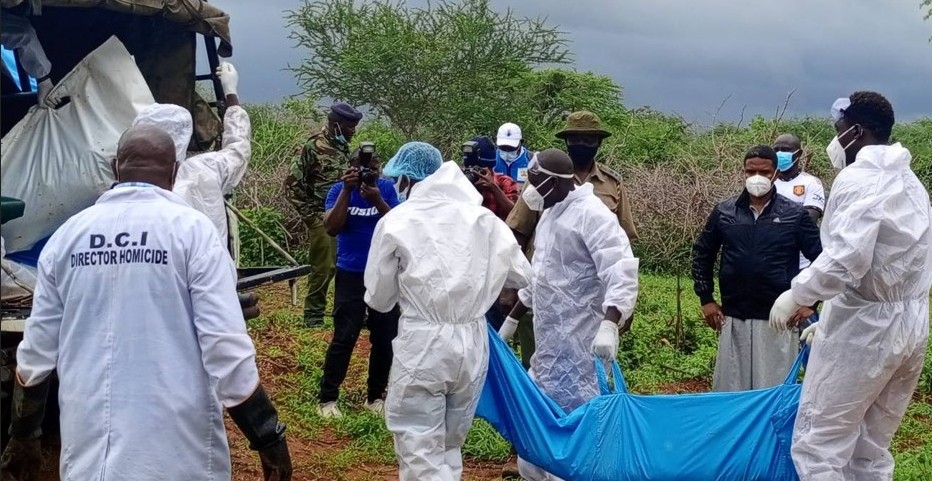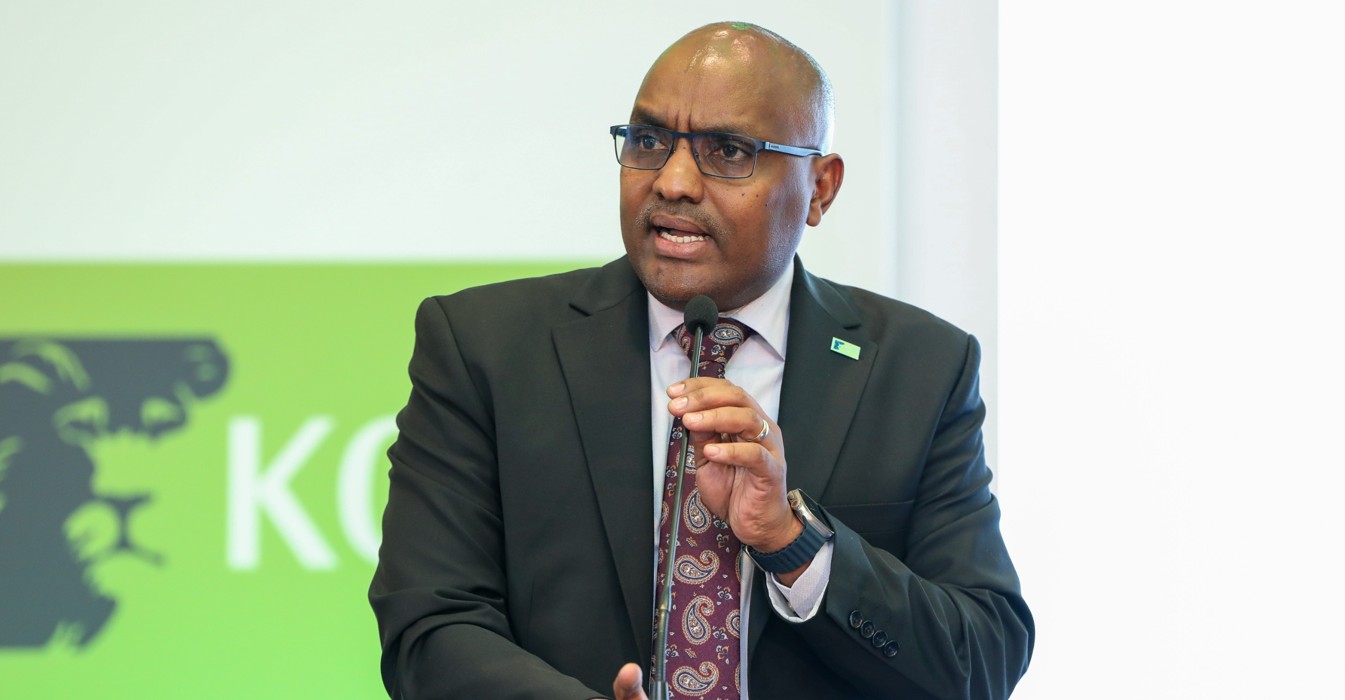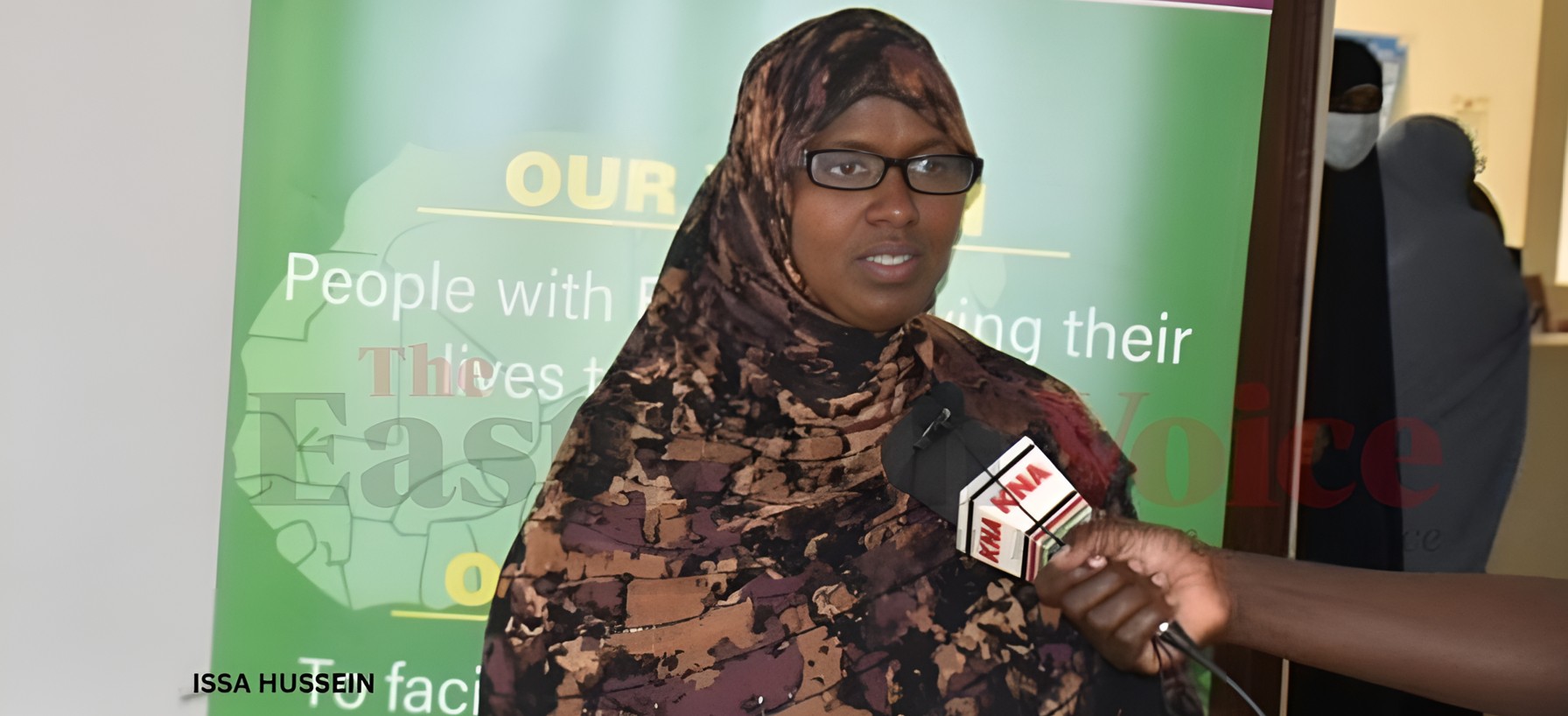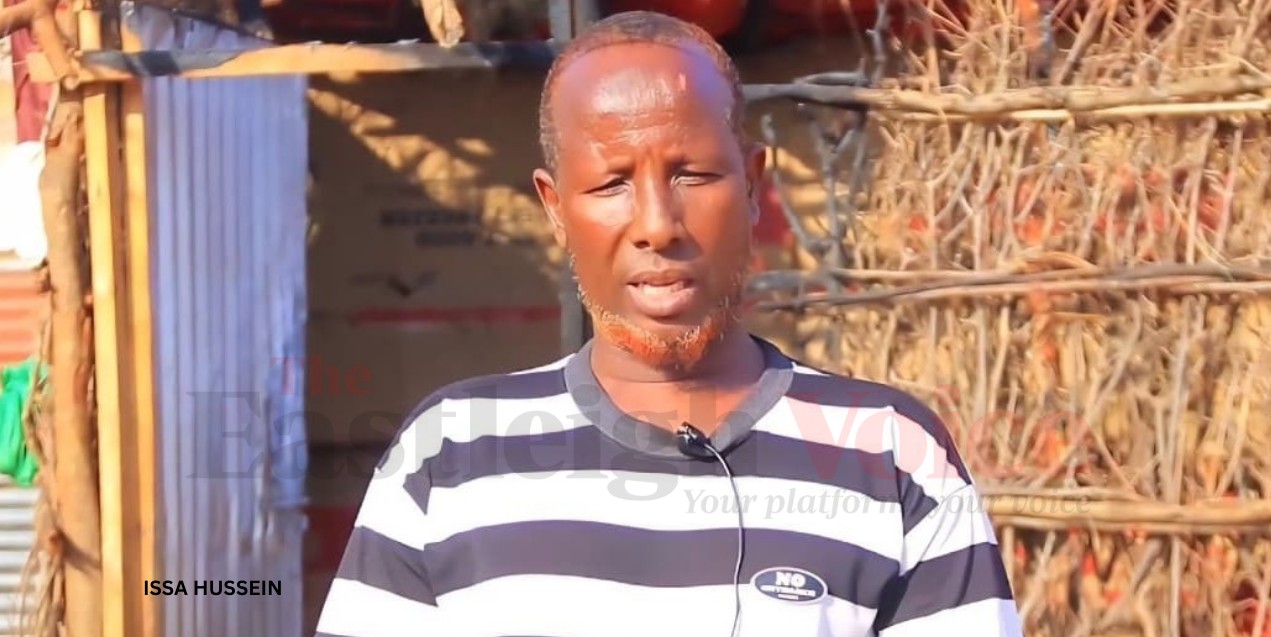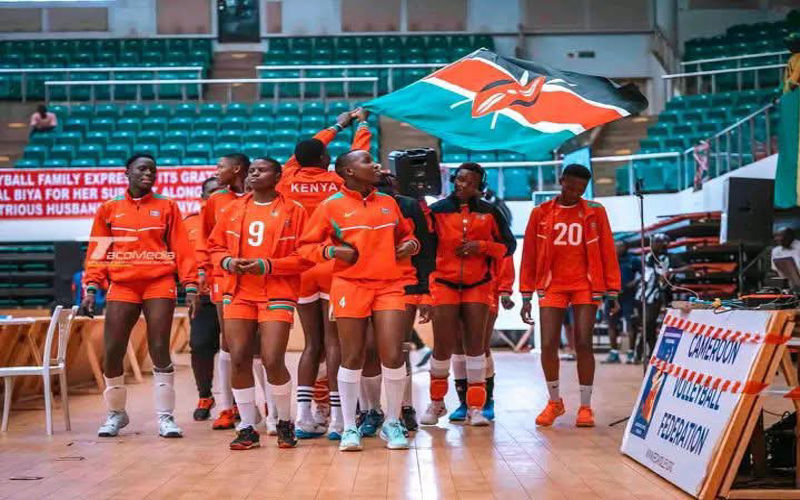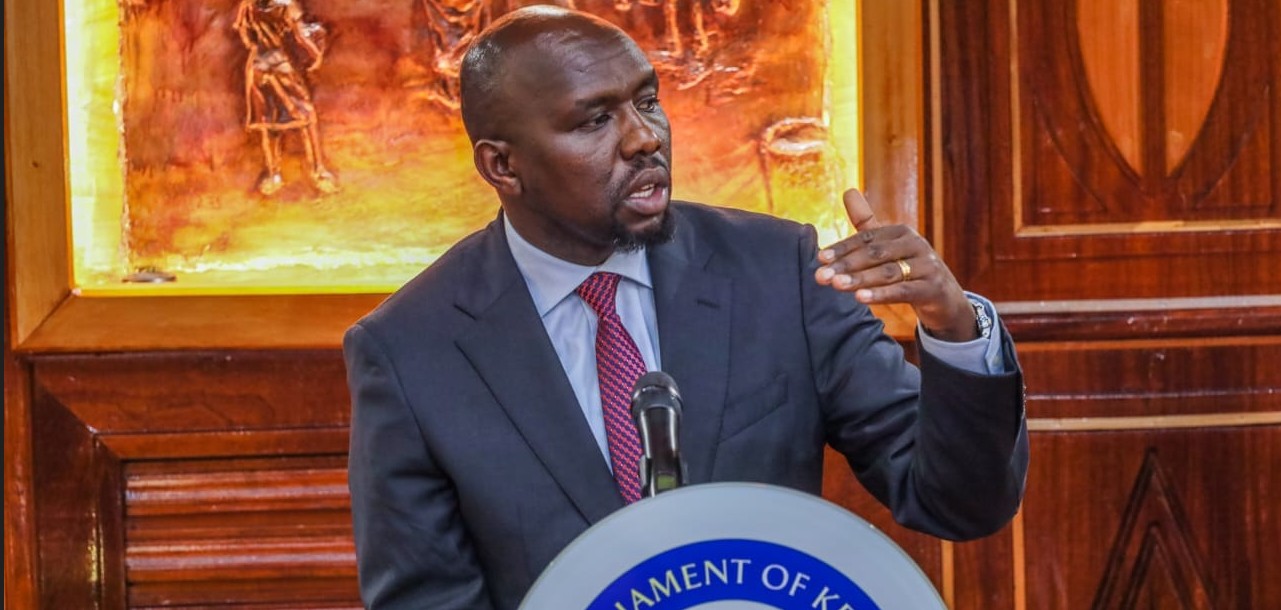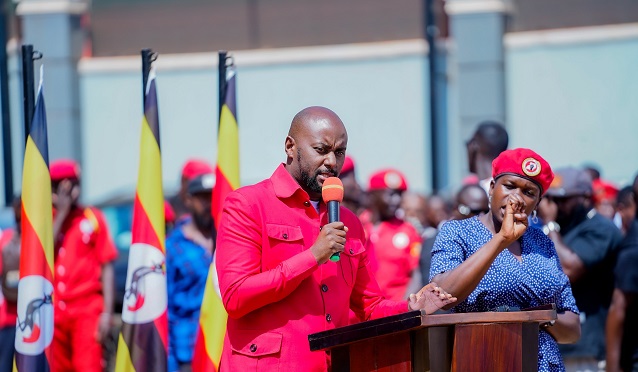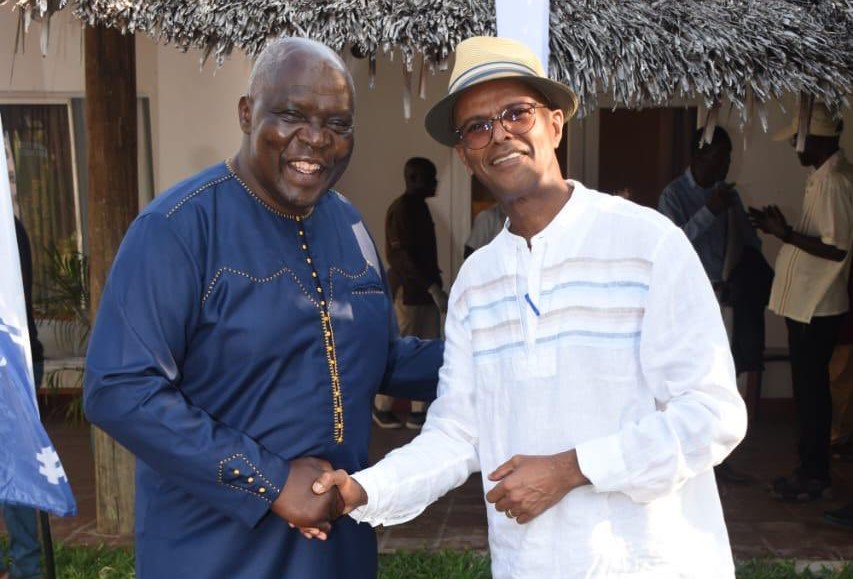Shot in the arm for FGM fight in Isiolo as survivors network launched
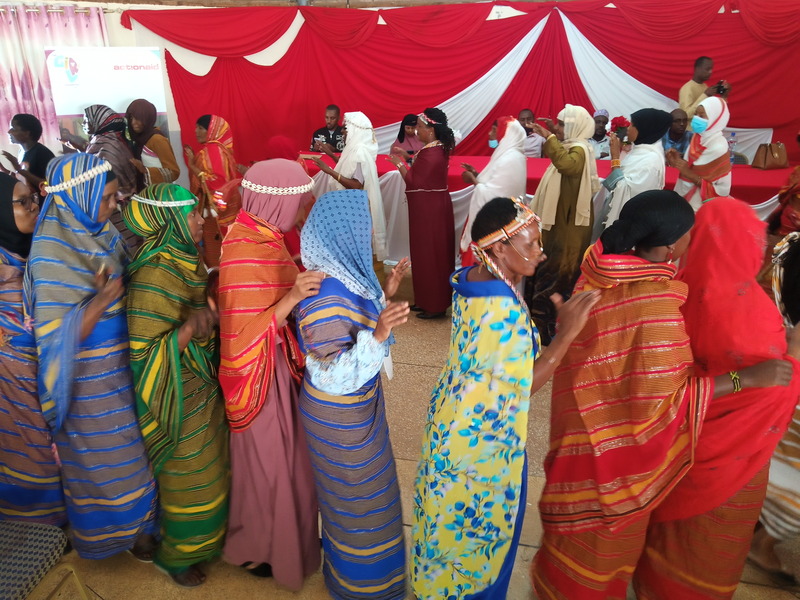
Communities that practice FGM consider it as a way to prepare girls for adulthood and marriage with those who have not undergone the cut faced with rejection and perceived as outcasts.
Isiolo County has launched a Female Genital Mutilation (FGM) Survivors Network to champion women's and girls' rights and support interventions aimed at reducing the high FGM prevalence rate in the region.
The Network has a membership across the 10 wards and will work closely with grassroot organisations in hotspot areas to support and empower the survivors to be agents of change in their communities.
More To Read
- Ruto assents to new Bills strengthening county revenue and public finance management
- Isiolo town on brink of chaos as armed groups roam freely - MP Mumina Bonaya
- Duncan Ojwang declines Ruto's nomination for KNCHR chair position, vetting suspended
- Murkomen tells Gachagua to record statement over Al-Shabaab claims upon return to Kenya
- Defiant Sifuna attacks Ruto again, accuses him of undermining devolution
- President Ruto distributes business equipment to Nairobi youth groups
FGM involves total or partial removal of the female external genitalia or injury to the genital organs for non-medical reasons. It causes bleeding, infections, complications at childbirth and increased risk of newborn deaths, according to the World Health Organisation.
Anti-FGM Board Chairperson Ipato Surum said there was a need to invest in survivor-led movements in the fight against FGM and appealed to men to abandon retrogressive practices.
"We must leverage the survivors' potential in ending the vice and achieving social transformation. Due to their experiences, they are uniquely positioned to lead anti-FGM efforts and educate the communities on its negative effects," she said during the launch in Isiolo town.
Communities that practice FGM consider it as a way to prepare girls for adulthood and marriage with those who have not undergone the cut faced with rejection and perceived as outcasts, making it impossible for them to be married within their communities.
Perceived as ripe for marriage, girls who have been subjected to FGM are married off, dimming their education ambitions.
Accompanied by the Board CEO Bernadette Loloju, Surum reiterated President William Ruto's commitment to end the vice through increased awareness and economic support to women and girls.
Loloju implored the survivors to boldly speak against FGM and not to allow their daughters to go through the ugly experiences they had.
"I am a survivor. My daughter has not been cut and she looks beautiful. We must recruit more survivors and women into the movement so that we share the message with as many people as possible," she said.
Women, she said, must also convince their husbands to regard girl child education to give them an opportunity to achieve their dreams.
"Women must have a voice and speak against any form of human rights violation. Men should also know that empowering women is not in any way disempowering them," she noted.
FGM prevalence in the county stands at an alarming 66 per cent, according to the 2022 Demographic and Health Survey. This means that 66 per cent of women aged between 15-49 years had undergone the cut against the national average of 21 per cent.
Deputy President Rigathi Gachagua early last month ordered national government administrators and the security team in Isiolo to rein on parents and guardians subjecting teenage girls to FGM, terming it an impediment to their quest for quality education.
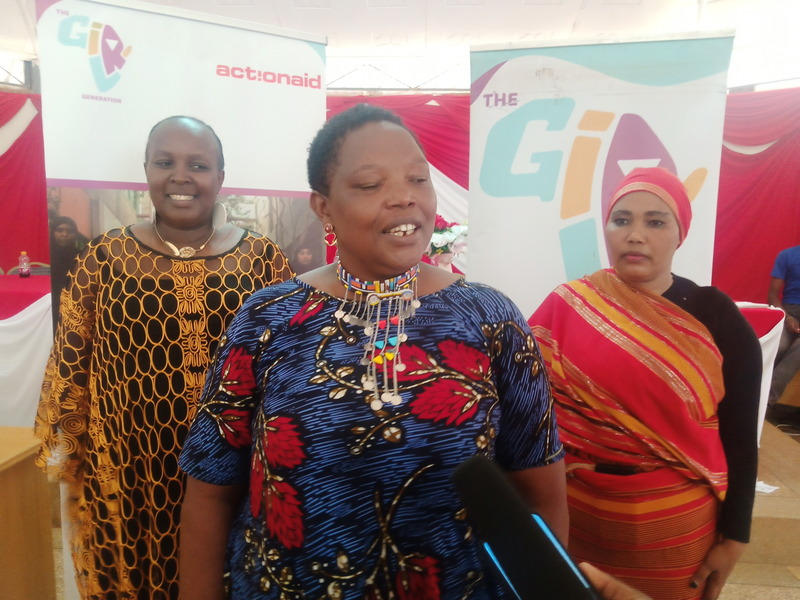 Anti-FGM Board Chairperson Ipato Surum addressing journalists during the launch of Isiolo FGM Survivors Network on March 5, 2024. (Photo: Eastleigh Voice)
Anti-FGM Board Chairperson Ipato Surum addressing journalists during the launch of Isiolo FGM Survivors Network on March 5, 2024. (Photo: Eastleigh Voice)
The teenage birth rate among girls aged 10-14 years stands at 18 per cent in the county.
"They are ready for school, not marriage...They are children, not mothers. They must be in school," Gachagua said, adding that FGM deprived girls of their childhood exposing them to miserable adult life they were not ready for.
Support initiatives
The network was birthed from an ongoing Survivors Leadership Training Program being implemented in Isiolo, Narok and Kajiado counties by the Girl Generation which mentors and supports the survivors to initiate local programs that seek to end FGM. The Program is funded by the UK government.
Girl Generation official Alice Ngare said the multifaceted challenges that survivors face including the impact on their mental health could only be handled through such a network.
"This is a strategic move to enhance outreach services. The network will bring the survivors together and amplify their voices in advocating for safeguarding women's rights," Ngare said.
Mumina Jirmo, the National FGM Survivors Network Chairperson, said the movement will enable the survivors to access various forms of support and offer them an opportunity to network with other survivors across the country.
"Survivors require access to resources and psychosocial support to beat stigma and heal and all these needs will be taken care of by the network," she said.
"Together we can create a future free of FGM where women and girls are not just heard but valued and respected."
Girl Generation's mother-daughter forum which offers mothers a platform to hear their daughters' pain and agony and share why they allowed them to go through the horrific experience was hailed for ensuring both parties forgive each other and acknowledge their mistakes as part of the healing process.
"The safe space (at Isiolo Youth Innovation Centre) allows us to cry out our pain and share our frustrations while we also understand why those we expected to protect us, allowed us to go through the excruciating pain," said Sara Sori, a survivor using art as a form of therapy.
County Commissioner Geoffrey Omoding said the government will ruthlessly deal with any parent who either marries off their daughters at an early age, subjects them to FGM or deliberately refuses to take them to school.
"Women must be allowed to make their own informed decisions. We appeal to the public to share information on areas where the procedure is being carried out so that we arrest the cutters," he said, in a speech read out by Assistant County Commissioner James Macharia.
By taking them to school, he said, girls would help their families out of the yokes of poverty and empower their communities.
Also in attendance were County Social Services Director Abdirahman Tadicha and Tume Gufu from the State Department of Gender who called for increased survivors' empowerment and protection of women's rights.
Isiolo becomes the first County to have an FGM Survivors Network.
Top Stories Today
